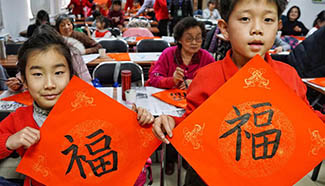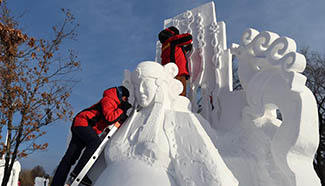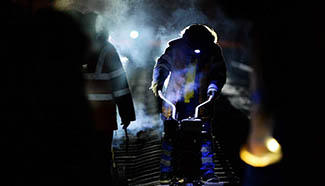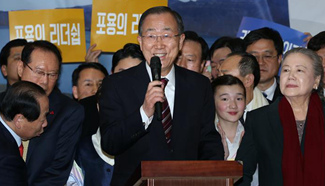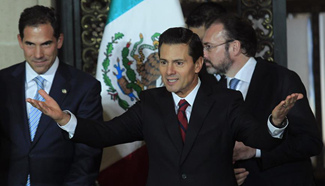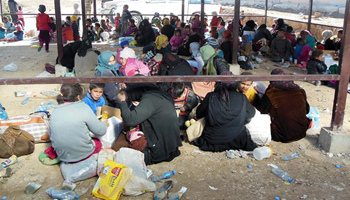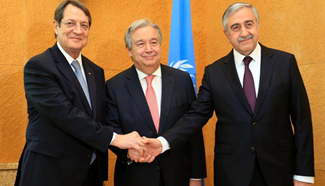BEIJING, Jan. 12 (Xinhua) -- Yang Dongliang has fulfilled his historical mission. Starting from spring semester this year, textbooks in China will use the phrase "14-year Chinese People's War of Resistance Against Japanese Aggression."
For years, Yang, a professor at Nankai University in Tianjin, has been attending seminars and writing essays proposing, advocating and lobbying for acceptance of the phrase.
On Sept. 18, 1931, China became the first country to engage the forces of fascism when the occupying Japanese army blew up a section of railway near Shenyang in northeast China. They then accused Chinese troops of engineering the event and began bombardment of barracks near the city that same evening. Thus began a large-scale invasion and an armed struggle that would last for 14 years.
Currently, textbooks refer to the "eight-year war" which only describes the full-scale invasion of the whole of China which began on July 7, 1937.
Yang was by no means a lone voice for the revision. Academics both at home and overseas see it as significant and necessary.
ACCURACY MATTERS
Tang Zhongnan of the Chinese Academy of Social Sciences expects the new wording to "restore the original picture of that part of history," accentuating the continuity of a conflict which, by the time of the 1937 attacks, had been going on for almost six years.
As historians and educators, Tang, Yang and many others are duty-bound to ensure today's students fully understand the course of anti-Japanese war, hence the revision.
The new wording acknowledges resistance by forces including the Northeast Anti-Japanese United Army led by the Communist Party of China (CPC) between 1931 and 1937. At that time, the army was about 300,000 strong, and many lost their lives in northeastern China during the period.
Resistance never paused after 1931, Yang said, and the campaign in the northeast was part of the unremitting and unswerving struggle of the Chinese nation that continued until 1945.
INTERNATIONAL AGREEMENT
According to Li Zongyuan, curator of the Museum of the Chinese People's War of Resistance Against Japanese Aggression in Beijing, academics reached consensus on the phrase "14-year war" more than ten years ago, after years of discussion.
By officially revising the wording, those who sacrificed their lives for the liberation of the nation will be recognized as national heroes, said Li.
The revision also has international repercussions. For a long time, international society has not adequately recognized the magnitude of China's role in the World Anti-Fascist War, said Tang. The revised wording can connect domestic and overseas scholars, including some in Japan, who hold that the war began in 1931. It will "help raise international awareness" of the huge sacrifices of the Chinese people.
China was the major east Asian battlefield in the war against fascism. More than 35 million Chinese soldiers and civilians were killed or wounded in the conflict.




